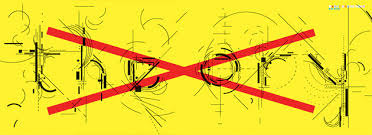I’m a big fan of writer, marketer, motivator, and change-maker Seth Godin and follow his blog religiously. Seth has previously guest-posted on DyingWords and he generously agreed to return with this insightful piece about human nature.
 When there’s a wreck on the side of the road, we can’t help it. Despite our best efforts, we look at the accident, sometimes even slow down to get a really good look.
When there’s a wreck on the side of the road, we can’t help it. Despite our best efforts, we look at the accident, sometimes even slow down to get a really good look.
Why?
To remind ourselves it’s not us. To reassure ourselves it’s not someone we know. Phew. Rubbernecking is our way of reassuring ourselves.
 Often, though, we do precisely the opposite when it comes to the apparently unfixable, to the enormity of horrible events, to tragedies. (Enormity doesn’t mean “extra enormous.” It refers to the emptiness of something so horrible and large we have trouble comprehending it).
Often, though, we do precisely the opposite when it comes to the apparently unfixable, to the enormity of horrible events, to tragedies. (Enormity doesn’t mean “extra enormous.” It refers to the emptiness of something so horrible and large we have trouble comprehending it).
Time Magazine produces a cover that we can’t bear, so we don’t buy that issue. We don’t see the billboard. A disease appears uncurable, so we don’t talk about it. It’s easier to talk about the little stuff, or events with hope.
We also do it with science, to facts about the world around us.
 There’s a long history of denialism, defending the status quo and ignoring what others discover. That two balls of different weights fall at the same speed. That the Earth rotates around the Sun. That the world is millions of years old. That we walked on the Moon. The denials all sound the same. They don’t come from stupidity, from people who aren’t smart enough to understand what’s going on. They come from people who won’t look.
There’s a long history of denialism, defending the status quo and ignoring what others discover. That two balls of different weights fall at the same speed. That the Earth rotates around the Sun. That the world is millions of years old. That we walked on the Moon. The denials all sound the same. They don’t come from stupidity, from people who aren’t smart enough to understand what’s going on. They come from people who won’t look.
Why deny? It’s a way to avert our eyes.
Two related reasons, internal and external.
The external reason is affiliation.
 What happens to one’s standing when you dare to question the accepted status quo? What are the risks to doing your own research, to putting forth a falsifiable theory and being prepared to find it proven wrong? What will you tell your neighbours?
What happens to one’s standing when you dare to question the accepted status quo? What are the risks to doing your own research, to putting forth a falsifiable theory and being prepared to find it proven wrong? What will you tell your neighbours?
When adherence to the status quo of our faith or organization or social standing looms large, it’s often far easier to just look the other way, to feign ignorance, or call yourself a skeptic (n.b. all good scientists are actually skeptics, that’s how they build careers… the difference is that the skeptical scientist does the work to prove to her peers that she’s right, and acknowledges when she’s not).





Wow, what an impressive author. I also agree that fear is the motivating factor in so many things, in life and in writing.
IMO, Seth Godin is the real deal. Everything he says, writes & does is intelligent and has a clear purpose. He’s also very generous for someone of his stature. When I email him, he’s back within minutes. I highly recommend everyone to follow his work, not just writers and marketers. He’s based in NYC and writes a daily blog, sometimes short, sometimes long, but it’s always informative and thought provoking